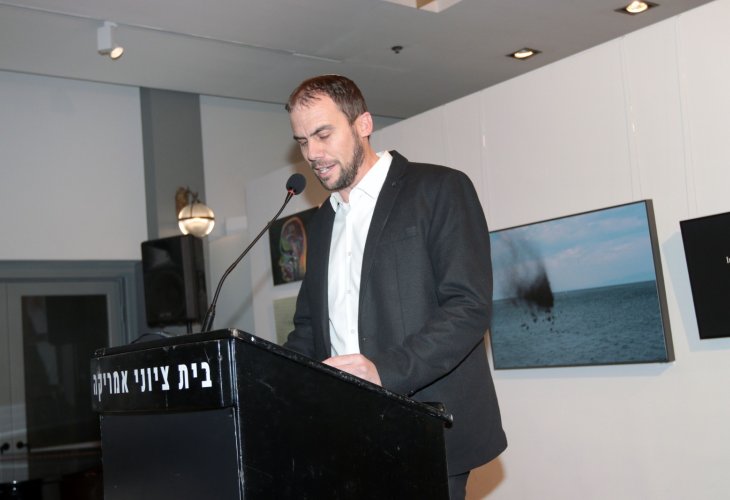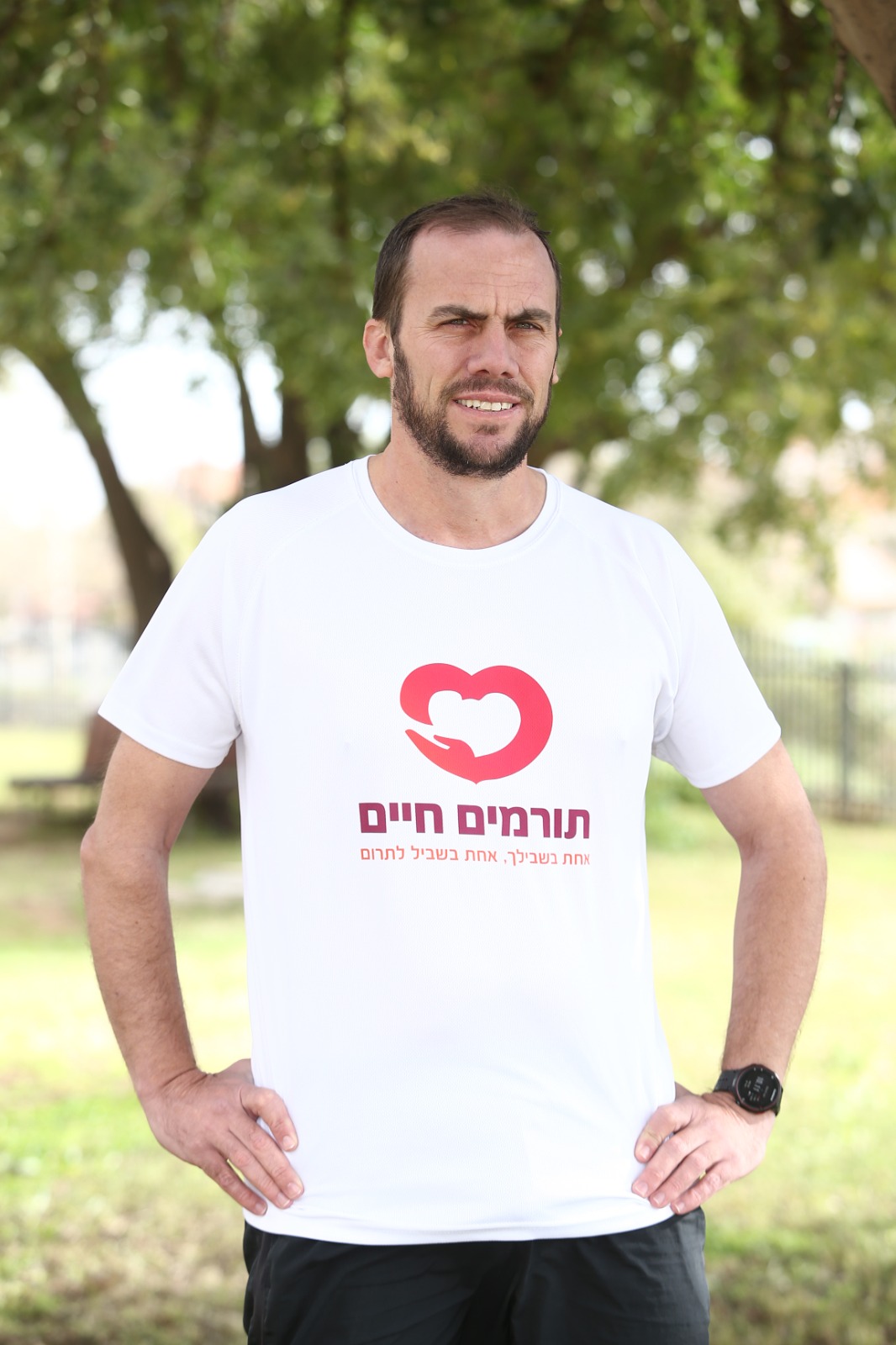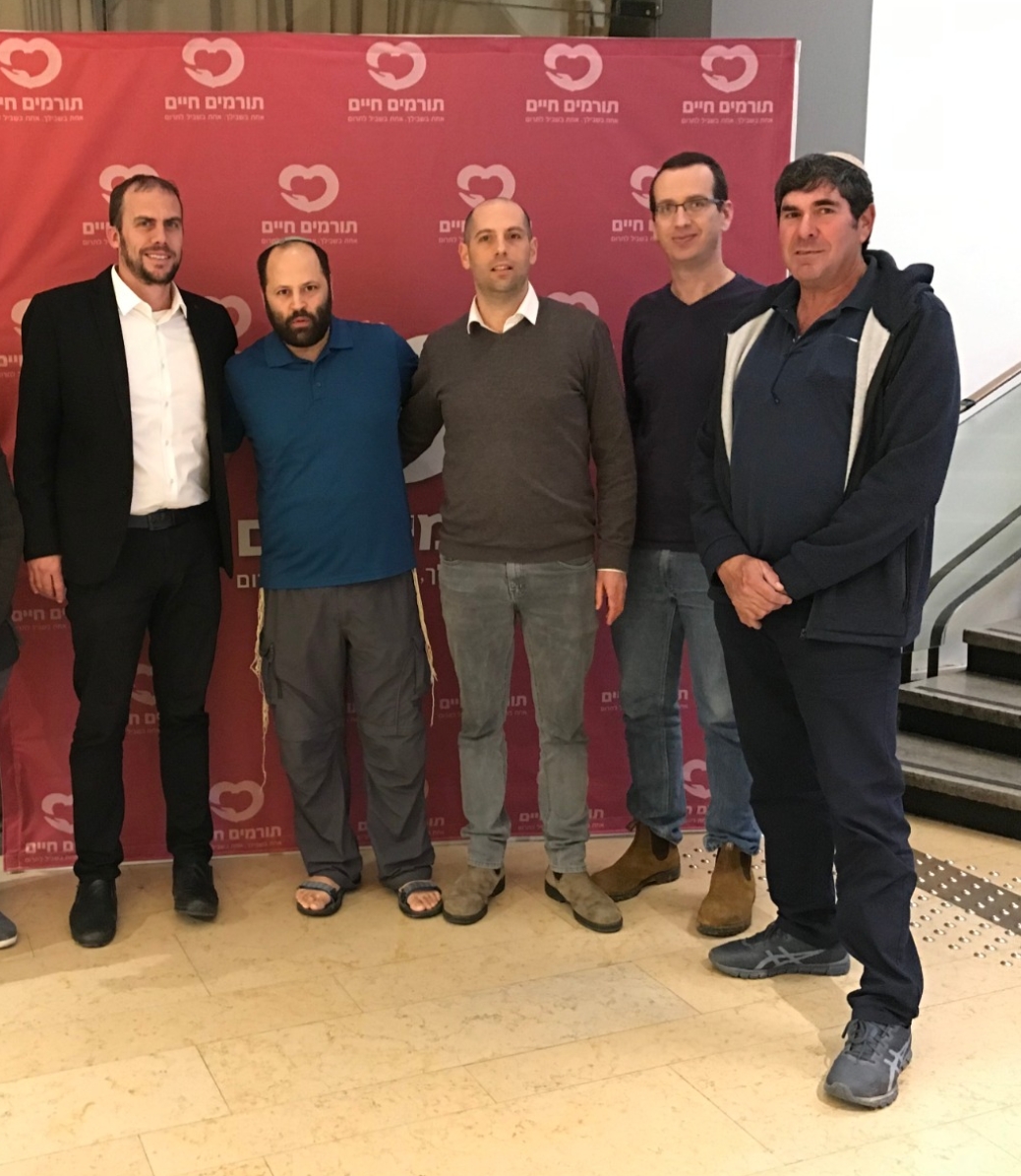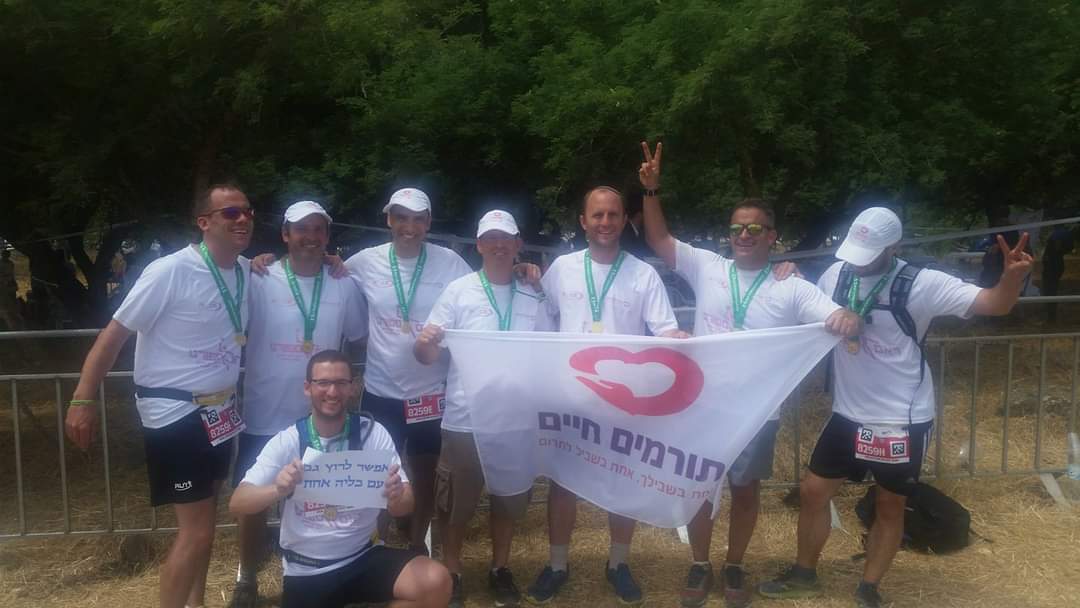"Every Time I See My Surgery Scar, I Know It Saved a Family's Life"
When Gabi Ravivo decided to donate a kidney six years ago, he never imagined it would inspire dozens of other donors. His desire to give, which influenced his wife Rotem and brother Dovi, led him to establish 'Torim Chaim,' connecting dialysis patients with potential donors.
 Gabi Ravivo
Gabi Ravivo"Every time I see my surgery scar, I know that somewhere in this country my donated kidney is allowing an entire family to live, and that brings immense satisfaction," begins Gabi Ravivo, chairman of the 'Torim Chaim' association dedicated to raising awareness of kidney donations. "Everyone has things they do in life, some of which they may regret looking back. But when you donate a kidney, you know without a doubt that you did the right thing, carrying that wonderful feeling with you for the rest of your life."
The 'Torim Chaim' association was established around four years ago, with numerous donors already passing through its ranks, which Gabi and his wife Rotem see as just the beginning. Every day after work, the Ravivos head to their attic, the hub of their operations, to start their second job of the day—linking dialysis patients with donors. Being the parents of six and working individuals themselves doesn’t prevent them from devoting their heart and soul to potential donors. "The goal is to minimize the waiting list for kidney donations to the extent of eliminating it entirely by addressing every need or question donors and transplant recipients might have," says Gabi.

An Infectious Donation
The whole story began about six years ago when Gabi decided to donate one of his kidneys. "I come from a background in emergency medicine and have worked as a medic for MDA over the last 15 years," he shares. "Over the years, seeing dialysis patients moved me deeply. There's a lot of distress seen in an ambulance, but this was different because the solution is essentially within each of us. These people are connected to a life-supporting machine, but their bodies become weak and can’t function properly. That realization drove my decision to donate a kidney myself, to Li'or, who was 33 at the time—at the peak of his life, yet in a state of profound weakness."
His younger brother Dovi attended the emotional meeting after the donation. "When Dovi saw the power behind it, he decided to donate himself. I initially thought his enthusiasm would pass, but he took it seriously and a few months later donated his kidney to Ohad."
Weren't you afraid of the risks involved in donating?
"There's the risk of anesthesia, like in any surgery, and a donor's chance of needing dialysis in the future increases from 1.5% to 4.5%. There are such risks, but knowing that 40% of those waiting for a kidney donation die every year made me consider what's more important—giving life to someone right next to me now or worrying about the minor chance it might affect me in 30 years. As we approach Rosh Hashanah, everyone prays and hopes for a good and healthy year for themselves, but there are people amongst us who might not make it through the year without our help. That’s the consideration that led me to donate and the reason we decided to establish 'Torim Chaim' four years ago, an organization dedicated to this cause."
Why start another organization after Rabbi Heber's "Gift of Life"?
"All efforts toward this goal are blessed. I myself donated my kidney through 'Gift of Life' and greatly appreciate the work of Rabbi Yeshayahu Heber, of blessed memory, who was a great inspiration. I founded 'Torim Chaim' to include kidney donors from the general population. Currently, we have 15 donors who do not wear kippot, and a few more in the process, and we’re sure that as awareness increases, this wave will only grow. To put it in perspective, in Peduel, where I live, there are 8 kidney donors among 400 families, and if the same ratio of donors to population size applied to Tel Aviv, there wouldn’t be a waiting list for donations at all."
 Kidney Donors
Kidney DonorsAnother focus of 'Torim Chaim' is on finding donors from within the patient's family. "Recently, for instance, a woman contacted me saying her father needed dialysis and asked how I could help," says Gabi. "I told her I’d help, but also mentioned that she could play a significant role by donating a kidney to her father herself. Generally, compatibility within the family is often higher, and from a mental connection perspective, it’s the right thing to do. We work hard to raise awareness among the patient’s family members to encourage them to donate."
If family donation isn’t feasible, 'Torim Chaim' helps dialysis patients find a donor independently. "We give them a platform on our website where they can share their stories, allowing potential donors to come forward specifically to help them. This approach empowers them to move from a passive state, helplessly waiting on a hospital list, to an active role in promoting themselves. For instance, a woman shared her story, and someone who saw it decided to donate to her. Another recipient, we conducted awareness programs in her kibbutz, leading one of the members to decide to donate to her. Tests later showed his donation wasn’t suitable, but through a paired exchange, she secured a matching kidney, as he donated to someone else."
Finally, 'Torim Chaim' does not forget the donor's family. "When a person donates a kidney, they can't function at home for at least two weeks, and during that time, their family might need help with practical matters, and we strive to assist down to the smallest details," says Gabi. "On the other hand, there are often family members against the donation who need long-term support to calm their concerns. We are there to talk with them, explain the risks, and help the process proceed with understanding and respect."
The One-Kidney Club
But the 'Ravivo Family Project', as some call it, didn’t stop there, and this time it was Gabi’s wife, Rotem, who joined the family’s 'One-Kidney Club'. "I donated a kidney to a mother of five, whose youngest was only 5, and she had another child with Down syndrome," she shares. "It started obviously with Gabi's donation, at a time when kidney donations were not as known or accepted. At first, when he told me about it, there was some shock, but gradually we learned about the surgery and recovery, and it was clear I supported it. Later we founded the association to help other patients, and over time the decision became ripe in me as well. Over the years and while raising children, I saw how stable everything seems, yet how fragile and changeable it is at any moment. This realization inspired me to use the life Hashem gifted me to help others."
 Torim Chaim Marathon
Torim Chaim MarathonHow did you handle the fear of the risks involved in donating?
"Fear is always there, which is good because it keeps us from exaggerated risks. It's there even when crossing a busy street, but the key is not letting it control you; rather putting it in the right proportion. In our case, when you see the good that can come from this decision and the gift of life it offers, you can make the right choice despite the fears. For me personally, as the donation date approached, the fear even grew because previously I was focused on the joy of doing something great, but towards the end, I understood it was about to become real. Nonetheless, I’m glad I managed to contain it during this phase as well and continued the process because it was definitely the right thing to do."
How did you feel after the donation?
"It was very emotional. Recipients have a long recovery process, and I was thrilled to see how my recipient’s condition improved every day. Three months later, when she could already function at home, it was even more moving."
Balancing Home, Work, and the Association
How do you manage to juggle the association, home, and work; isn’t it overwhelming?
"Our home lives it, and yes, it requires sacrifices, but knowing we have a big mission saving many lives is what gives us strength," says Gabi. "Additionally, for years now I’ve been responding to emergency calls from MDA, so for our children, it’s already routine. I believe if parents aren’t at peace with their decisions, their children sense a void, but if it’s clear to the parents, then it's natural for the children, too. Also, when our kids ask us to pause and be with them, we truly strive to do so, which is why it seems they don’t feel our actions come at their expense."
Besides Gabi and Rotem, others voluntarily invest their time and skills in the association. "Like, the digital manager is someone whose mother had a transplant, and from this experience wanted to contribute," Gabi explains. "There are many good people eager to volunteer and be part, as well as those interested in donating a kidney. They visit our home to ask, listen, weigh their thoughts, and see how they can advance the process. Sometimes potential donors who received a rejection seek to try again, and we try to be 'their home' and help them do so, understanding that every person is a whole world."
In conclusion, Gabi says, "Anyone considering this process is welcome to contact us with joy. Initially, we provide materials on the topic to help understand it better and involve family members in understanding the process. Ultimately, someone who chooses to donate a kidney returns to their regular life, but along the way, they get to save lives, not just one person, but an entire family."

